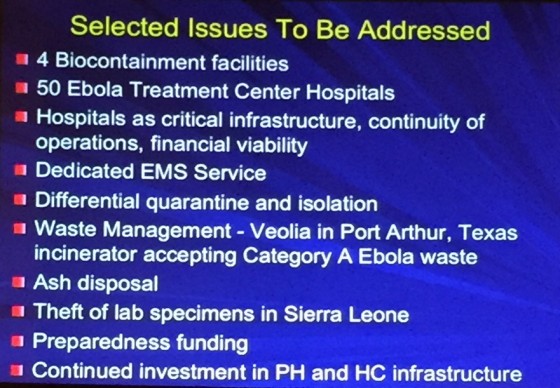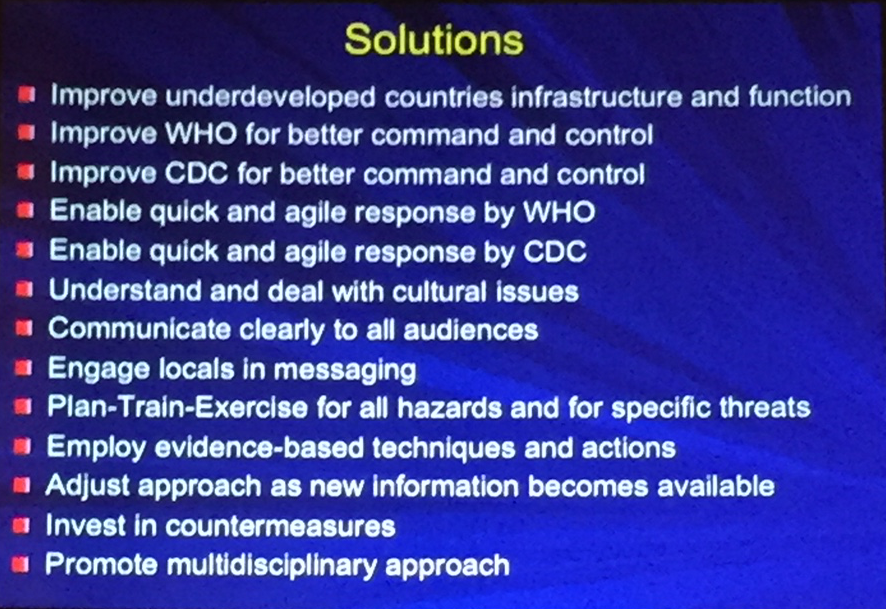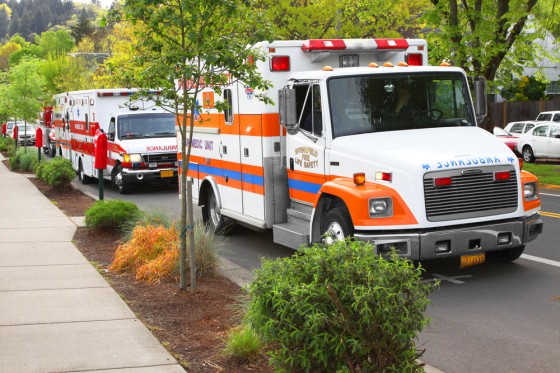NEW ORLEANS—At the first day of the International Disaster Conference and Expo (IDCE), one of the primary topics of areas of concern for attendees and speakers alike was the risk of pandemics and infectious diseases. In a plenary session titled “Contagious Epidemic Responses: Lessons Learned,” Dr. Clinton Lacy, director of the Institute for Emergency Preparedness and Homeland Security at Rutgers, focused on the recent and ongoing Ebola outbreak.
While only four people in the United States were diagnosed with Ebola, three of whom survived what was previously considered a death sentence, government and health officials cannot afford to ignore the crisis, Lacy warned.
“This outbreak is not just a cautionary tale, it is a warning,” Lacy said.
“Ebola is our public health wakeup call.
”
A slow start by the Centers for Disease Control, inadequate protective gear in healthcare facilities, and inadequate planning for screening quarantine and waste management were some of the key failings in national preparedness for Ebola. And all were clearly preventable. A significant amount has been done to improve preparedness, Lacy said, but there is still a significant amount yet to do as well.
Among the issues to be addressed, Lacy pointed to:
Some of that improvement must come from the top. Funding has been cut for healthcare facilities nationwide, as has money for the Hospital Preparedness Program, operated by the CDC. Other solutions can be carried out at both a national level and among individual healthcare facilities, including:
Ultimately, Lacy said, the concern is not about Ebola—it’s about the new and emerging diseases that could prove even more catastrophic. Dozens of diseases have been discovered emerging in nature, and we have no previous contact with them, meaning we have no immunity. Further, the risks of reemerging illnesses and synthetic bio threats that any graduate student or doctor of biology could make in a lab pose a significant danger that must be prepared for now.
“Public health infrastructure is like fire departments—you can’t just fund them when there are fires,” Lacy said.



